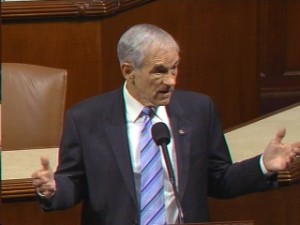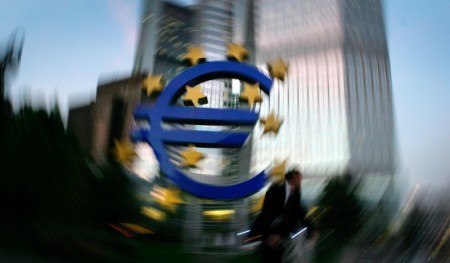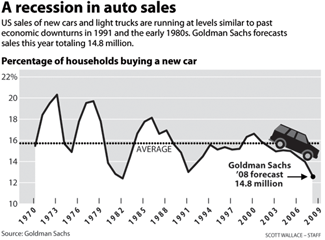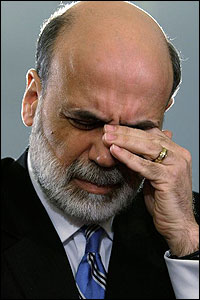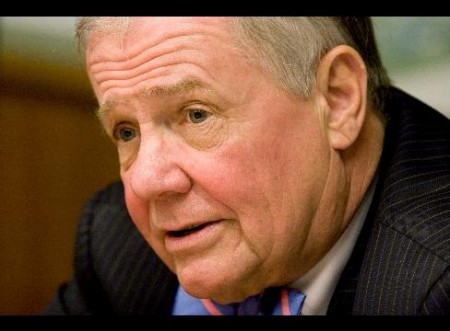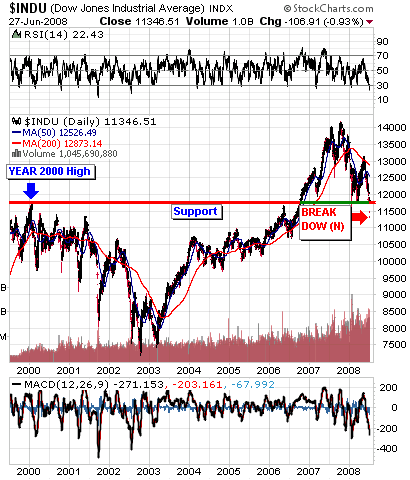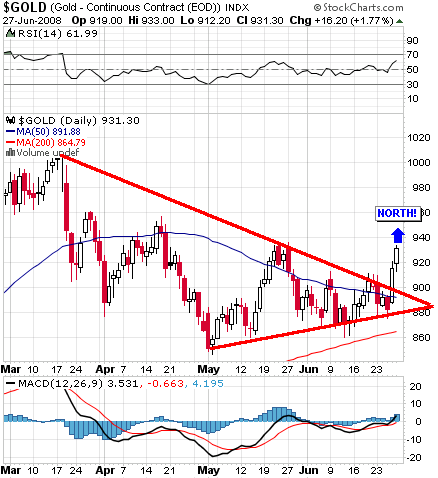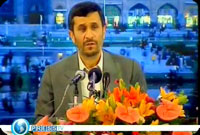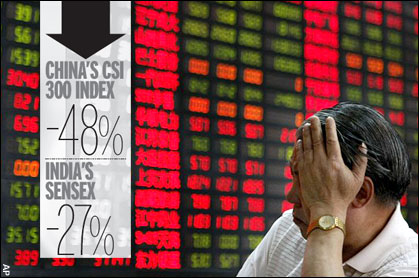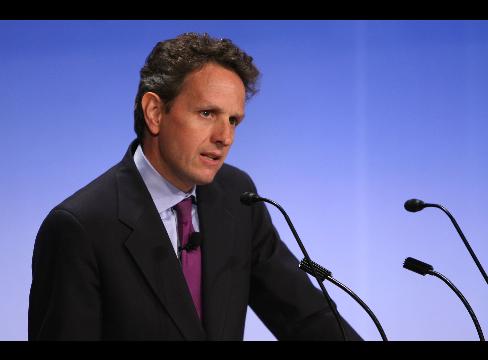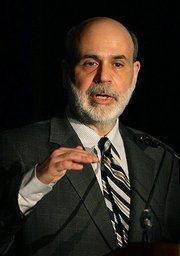Related articles and videos:
– Ron Paul: This coming crisis is bigger than the world has ever experienced
– Dow suffers worst 1st half since ‘70
– Fortis Bank Predicts US Financial Market Meltdown Within Weeks
– Barclays warns of a financial storm as Federal Reserve’s credibility crumbles
– Jim Rogers: Avoid The Dollar At All Costs
– Ron Paul on Iran and Energy June 26, 2008
– Marc Faber: ‘Misleading’ Fed Should Let Banks Fail
BEIJING, July 1 (Xinhua) — China has taken a series of increasingly aggressive measures in the past several months to blunt the impact of so-called “hot money,” amid the explosive growth of its foreign exchange reserves, which have soared beyond what can be explained by trade and investment flows.
The inflows have been so massive as to raise alarms over the country’s financial security.
According to the State Administration of Foreign Exchange (SAFE), as of the end of May, forex reserves stood at 1.797 trillion U.S. dollars.
During the first five months of 2008, forex reserves increased by 18.7 percent year-on-year, or 268.7 billion U.S. dollars, SAFE figures showed.
Where is all that money coming from, and where is it going?
HOW MUCH IS “HOT MONEY”?
What caught the attention of analysts was that forex reserves jumped at the same time as the current-account surplus and foreign direct investment (FDI) into the fixed-asset field declined year-on-year.
Set against the increased forex reserves in the first five months of this year, there was the 78.02 billion U.S. dollars represented by the trade surplus, which was down 8.6 percent year-on-year.
Another 42.78 billion U.S. dollars was connected with FDI in the first five months, which soared nearly 55 percent year-on-year. But FDI going into fixed assets (longer-term investment), actually fell 3.5 percent in the same period.
Jiang Zheng, a macro-economist at a Beijing-based securities firm, has closely tracked these figures and analyzed the data.
Deducting the trade surplus and the FDI, there was an unexplained 147.9 billion U.S. dollars in the forex reserve increase figure, which Jiang and numerous other analysts consider to be “hot money”, which is usually defined as short-term global speculative funds moving among financial markets in search of the highest short-term return.
The government doesn’t release official figures on this category of funds; in fact, it doesn’t even use the term “hot money”. So analysts can only make estimates.
Jiang said the “hot money” figures deduced by analysts might even be underestimates. “There is a tricky decline among the FDI figures, i.e. the drop of fixed-asset investment,” he explained.
“Foreign direct investment in the first five months soared about 55 percent. But strangely, fixed-asset FDI in the first five months fell 3.5 percent from last year’s figure,” Jiang said.
Jiang said it appeared that some speculative money had managed to move into China in the guise of FDI.
But there are many other channels for “hot money” to flow into China. These include falsified international trade with over-invoiced exports and underground private banks, according to Jiang.
Jiang and other analysts maintained that as much as 600 billion U.S. dollars in “hot money” had surged into the country, most of it after 2005.
Read moreIs China flooded with ‘hot money’ because of an expected meltdown in the U.S.?
